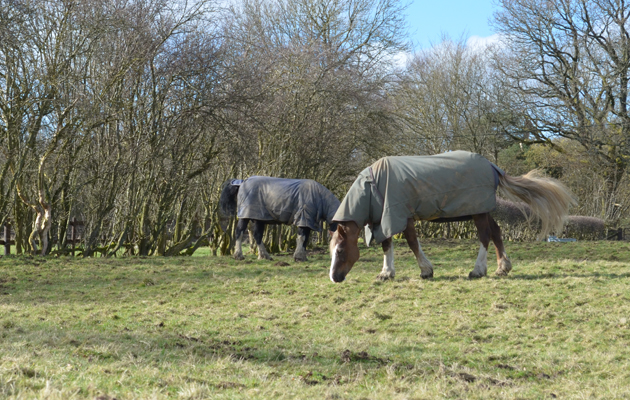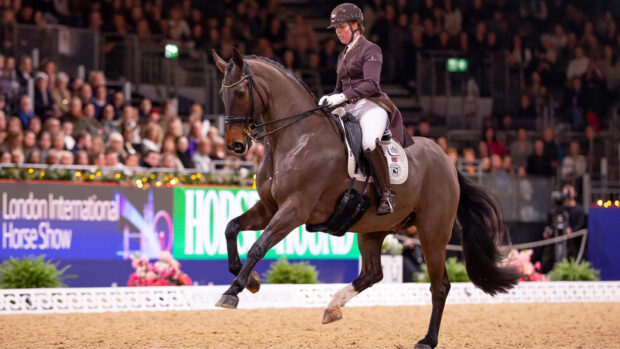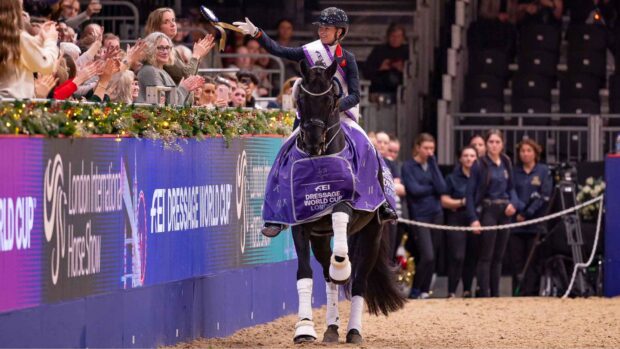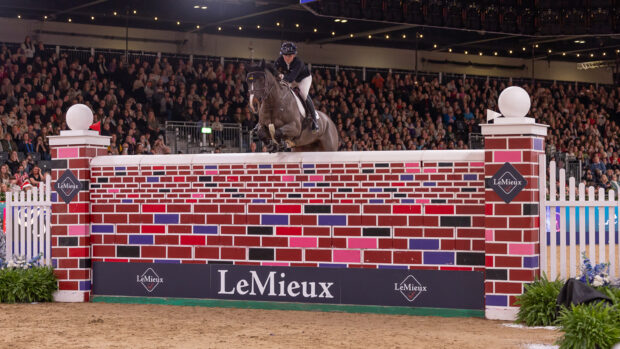Owners must continually strive to improve their understanding of what horses want and need, rather than what we think they want and need, as we try to improve the partnership between horses and humans.
This year’s World Horse Welfare conference, which was held entirely online owing to the coronavirus pandemic, had as its theme: The horse-human partnership — what’s in it for the horses?
Speakers covered a range of issues that contribute to a relationship older than civilisation, ranging from work to leisure and sport, today (12 November).
World Horse Welfare chief executive Roly Owers introduced the conference, saying the pandemic would not “delay us in our shared mission to improve the horse-human partnership”.
Asking what is meant by the phrase, Mr Owers acknowledged that it could be interpreted in a range of different ways.
“But at the core, it’s about recognising that a horse isn’t a machine, but a sentient creature that responds to its environment and other animals, and experiences positive and negative emotions,” he said.
“In the past, our charity would say it’s right for people to use horses as long as they don’t abuse them. But ‘use’ feels a crude term today for what’s always been a special relationship, and it implies a very one-way relationship when in truth any involvement of a horse in any activity is a partnership.”
Mr Owers pointed out the shared horse-human history, with an evolving relationship taking in a huge number of different types of partnership.
“Throughout all these, there is or should be, a sense of camaraderie and respect, from basic consideration to full-on devotion to the animal, even ‘best friend’,” he said.
“We have a pretty good grasp of the benefits horses bring to humans in the partnership but what do horses get in return, what’s in it for them? And is there enough to make the partnership fair?”
Mr Owers said many of us know how to give horses positive experiences, and what they enjoy, but questioned how much we really know about what they want.
“Are we possibly too prone to anthropomorphism, without truly understanding the horse psyche?” he asked. “There’s so much we don’t know.
“The more open-minded we can be about how out horses truly feel, the more rational we can be about our assessments, and the better this will be for our horses.”
Mr Owers said riders must question their beliefs and techniques, noting that knowledge handed down through generations may be helpful, but may also not be applicable to horses today.
“While empathy and compassion are vital for a successful horse-human partnership, anthropomorphism is just the opposite,” he said, adding that horses do not see the world as we do, and we must recognise that in managing them.
More research is needed to determine what horses enjoy, and this needs to be acted on, to improve the partnership, Mr Owers added. But he said we can still make progress by being clear what is not beneficial for horses in the partnership, such as over-training, over-stabling and over-feeding while denying the ability to forage, and socialise with others.
“None of these shortcomings are made up for by our horses’ having expensive tack or being immaculately turned out,” he said.
“After all, horses do not want to post photos on Instagram, to attract the envy of other horses.
Continues below…

All riders have a part to play in ensuring horse sport’s future

‘We must let horses be horses’: charity’s welfare warning
‘There are those who pamper their animals, over-feed them treats, keep them in stables all day and pile rugs on

Subscribe to Horse & Hound magazine today – and enjoy unlimited website access all year round
“The clear message is that we must be honest and try to separate what we feel is positive in the partnership for us, and for the horse. It’s important to also remember that all horses are individuals, and one size never fits all.”
“Do we think there’s anything in it for the horse?” he added. “Absolutely yes. But we also believe there are times there should be more in it for them, we need to be better at recognising it.”
Riders should consider the balance of the relationship they have with their horses, in relation to our own and their needs, he said, adding that putting more effort into their wellbeing should not detract from ours.
Mr Owers added that we must always check what we think we know about our horses, against objective measurements, and question why horses behave the way they do, “because the easiest answer may not be the right one”.
More needs to be invested in research, and practical advice for owners, he said, and we must be willing to challenge our beliefs.
“Finally, we should consider the mental wellbeing of our horses at least as much as their physical welfare,” he said. “For horses to have a good life they must have regular opportunities for positive experiences, and sometimes this just requires just a little more effort.
“Without doubt, these actions will help us maintain a more balanced relationship with our horses. Whether breeding, training, competing, or making the difficult decision to say goodbye, we must always challenge ourselves on whether what we’re doing will have enough in it for the horse.”
Horse & Hound magazine, out every Thursday, is packed with all the latest news and reports, as well as interviews, specials, nostalgia, vet and training advice. Find how you can enjoy the magazine delivered to your door every week, plus options to upgrade to access our H&H Plus online service which brings you breaking news as it happens as well as other benefits.




